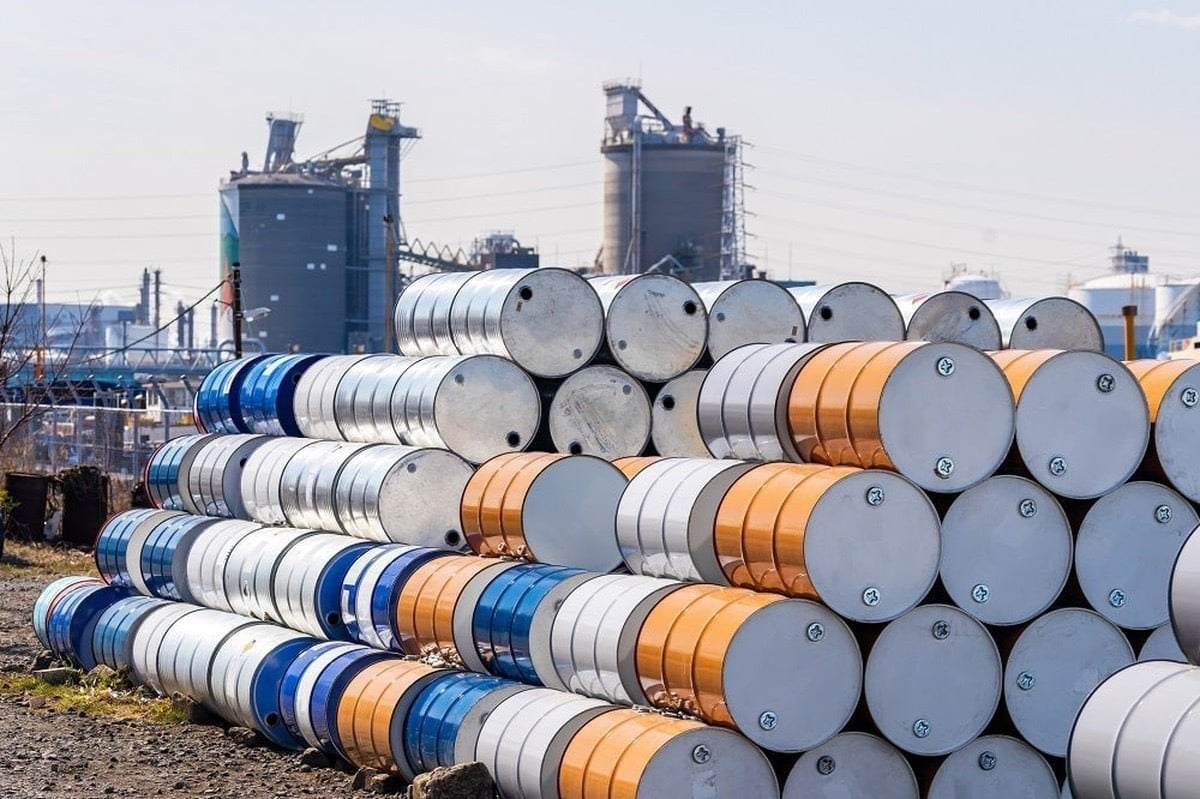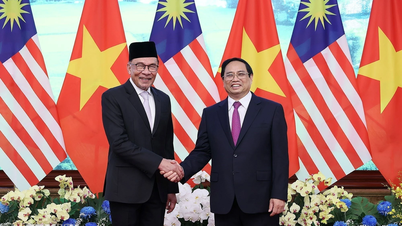At the end of the first trading session of the week (May 12), world oil prices increased by about 1 USD, reaching a two-week high. Specifically, Brent oil increased by 1.05 USD/barrel (1.6%) to 64.96 USD/barrel; WTI oil increased by 93 cents (1.5%) to 61.95 USD/barrel. Both reached their peaks since April 28.
The US and China reached a 90-day truce in tariffs, boosting oil prices, the US dollar and Wall Street stocks, Reuters reported, as markets hoped the deal would end a protracted trade war that has threatened global growth and dented energy demand.
Experts from ING bank said this was a more positive move than expected, although the negotiation process between the two countries still has many obstacles ahead.
Federal Reserve Governor Adriana Kugler said the trade deal may make it less necessary for the Fed to cut interest rates, which somewhat slowed the rise in oil prices earlier in the session because low interest rates often boost energy consumption.
Oil prices had earlier plummeted to a four-year low amid concerns that the trade war would stifle global economic growth and oil demand. At the same time, OPEC’s unexpectedly higher production also added to the downward pressure on prices.
However, expectations of stable demand this year were bolstered by Saudi Arabia’s Aramco, OPEC’s largest oil producer, predicting that demand could rebound if the US and China end their dispute. In addition, Iraq, OPEC’s second-largest producer, is expected to cut its oil exports to around 3.2 million barrels a day in May and June, a much lower level than in previous months.
Oil prices were also supported by news that Equinor (Norway) temporarily suspended operations at the Johan Castberg field in the Arctic for repairs, reducing supply in the short term.
However, other factors are limiting the upside. Among them, negotiations between the US and Iran over its nuclear program could lead to an easing of sanctions, allowing Iran – OPEC’s third-largest oil producer – to increase exports again. At the same time, if the US succeeds in promoting peace talks between Russia and Ukraine, sanctions on Moscow could be eased, increasing global oil supplies.
Ukrainian President Volodymyr Zelensky said he was ready to meet Russian President Vladimir Putin in Turkey on May 15, with the mediation of US President Donald Trump, who is likely to attend in person. Russia was the world’s second-largest oil producer last year, so any diplomatic developments between Russia and Ukraine could have a major impact on global oil prices.
In a related development, Indian Prime Minister Narendra Modi warned Pakistan that New Delhi would continue to target “terrorist bases” across the border if there were further attacks on India. As the world’s third-largest oil consumer, any geopolitical tensions in India could also affect the international energy market.
Source: https://baoquangnam.vn/gia-xang-dau-hom-nay-13-5-tiep-tuc-leo-doc-3154648.html



![[Photo] Ho Chi Minh City holds funeral for former President Tran Duc Luong](https://vphoto.vietnam.vn/thumb/1200x675/vietnam/resource/IMAGE/2025/5/24/9c1858ebd3d04170b6cef2e6bcb2019e)




![[Photo] The Government Standing Committee works with ministries and branches on the real estate market situation.](https://vphoto.vietnam.vn/thumb/1200x675/vietnam/resource/IMAGE/2025/5/24/e9b5bc2313d14c9499b8c9b83226adba)





















![[Photo] Party and State leaders visit former President Tran Duc Luong](https://vphoto.vietnam.vn/thumb/1200x675/vietnam/resource/IMAGE/2025/5/24/960db9b19102400e8df68d5a6caadcf6)



























































Comment (0)